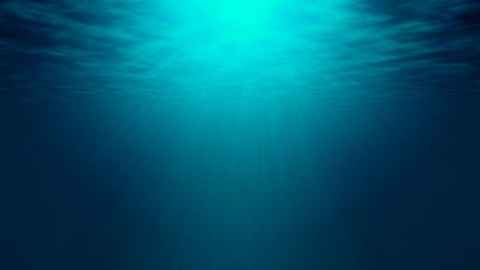We can’t halt ocean decline as individuals
11 May 2020
Opinion: Declines in ocean species continue a downward spiral for our oceans. Individual action is important, but we won't succeed without government policy.

The health of our vast mysterious oceans, key to our survival and home to the richest diversity of life on the planet, continues to fall.
Countless species are facing decline or worse, extinction. This loss alone will be tragic, but it leaves us with an additional problem: The job these species have carried out within their complex marine habitats goes unfinished, creating a downward spiral for our ecology.
Take for example the simple mussel. These shellfish have long cleaned and detoxified our water, filtering it effectively as they feed. The pellets they produce then trap sediment onto the sea floor, which prevents harmful materials from re-entering the water column.
At the same time, their beds help rebuild ecosystems for fish and other species to come and thrive among the reefs. By their mere presence they stabilise the ocean floor, changing the water flow. But when their populations decline, fewer animals come around, including the juvenile fish that rely on the beds as nurseries. Without these mussels stabilising the seabed, storms are more disruptive and the water is murkier.
We don’t have to look far to see the results of this decline. Let’s take just one species of mussel in Auckland’s Hauraki Gulf, the green-lipped mussel endemic to New Zealand. Their beds used to cover about 1500km2 of the Gulf but fell victim to overfishing by trawling in the 1950s-1960s when they removed tonnes from the seafloor. Now, more than 95 percent of this reef has disappeared. The populations in the Marlborough sounds have also been decimated.
Like most marine creatures, mussels are affected by multiple stressors. Soil runoff from land and sediment resuspension in the ocean makes it hard for them to feed, and overfishing and dredging is killing them. In short, recovery for these creatures is stunted by urban development, agriculture and forestry.
These are all changes that make it hard for native populations to bounce back, at least without a helping hand.
Restoration involves physically placing these green-lipped mussels onto the seafloor to form restored beds, which scientists are doing now, then monitoring and planning for the next placements.
We know our oceans have long served many human purposes: food, recreation, economic livelihoods and as giant sinks and dumps. However they also have the crucial, invisible job of absorbing around 90 percent of the excess heat and more than 20 percent of carbon dioxide emissions, slowing down the climate change process.
But we also know they are overburdened with runoff, pollution, plastics, dredging, sediment, habitat disturbance and overfishing; under-restored and under-protected. In some parts of the ocean, rising temperatures are being felt acutely, with no animals or oxygen and growing acidification.
Sea ice and glaciers are melting, many of which have for years held tight stores of carbon. As they melt, more carbon is released into the atmosphere, escalating global warming, rising sea levels, and acidifying oceans further. These and other changes to marine ecosystems, especially our coasts and estuaries, are affecting the benefits we often take for granted.
Last year’s Intergovernmental Panel on Climate Change’s (IPCC) assessment on the state of the planet’s oceans was sobering, but if we act quickly to mitigate these multiple issues there is still hope they can continue to sustain us.
The Zero Carbon Bill passed last year is a starting point for New Zealand, but baby steps. The evidence is clear they won’t be enough. Halting this downward slide requires giant steps, from the government, fellow scientists, and from all New Zealanders who together can choose to unite in the cause or let the situation disintegrate further.
Fundamentally, we need to rethink our economy and business models to harmonise with the natural world; low carbon, pollution-free, and sustainable in the long-term for all who share the land and water.
And while individually positive actions all add up, government policies are of ultimate importance. At the top of our policy wish list would be: protecting more sections of the ocean as marine reserves, supporting shellfish restoration and protecting seas from overfishing with suitable legislation.
We need a deeper understanding of how our actions and inactions are interlinked with the rest of the biosphere. Obviously we’re not alone in tackling these enormous problems, but given the global challenges, we believe solutions need concerted efforts from all of us if we are to arrest these potentially calamitous declines and protect the health of our land and sea for future generations.
Dr Maria Armoudian is a senior lecturer in Politics and International Relations in the Faculty of Arts, Dr Jenny Hillman is a Research Fellow in Marine Science at the Faculty of Science, and Professor Simon Thrush is head of the Institute of Marine Science at the Faculty of Science.
This article reflects the opinion of the authors and not necessarily the views of the University of Auckland.
Used with permission from Newsroom We can’t halt ocean decline as individuals 11 May 2020.
Media queries
Alison Sims | Research Communications Editor
DDI 09 923 4953
Mob 021 249 0089
Email alison.sims@auckland.ac.nz